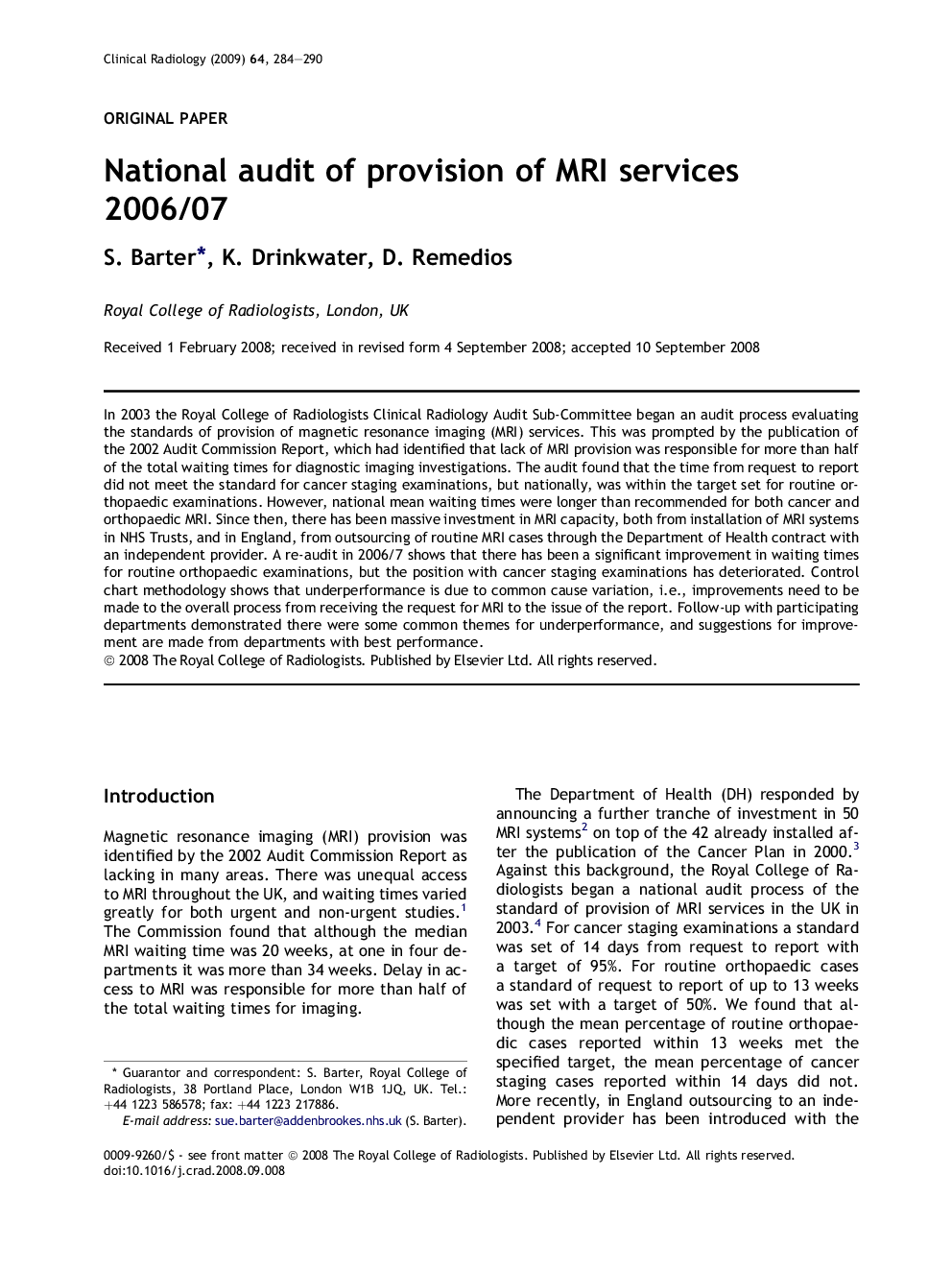| Article ID | Journal | Published Year | Pages | File Type |
|---|---|---|---|---|
| 3983312 | Clinical Radiology | 2009 | 7 Pages |
In 2003 the Royal College of Radiologists Clinical Radiology Audit Sub-Committee began an audit process evaluating the standards of provision of magnetic resonance imaging (MRI) services. This was prompted by the publication of the 2002 Audit Commission Report, which had identified that lack of MRI provision was responsible for more than half of the total waiting times for diagnostic imaging investigations. The audit found that the time from request to report did not meet the standard for cancer staging examinations, but nationally, was within the target set for routine orthopaedic examinations. However, national mean waiting times were longer than recommended for both cancer and orthopaedic MRI. Since then, there has been massive investment in MRI capacity, both from installation of MRI systems in NHS Trusts, and in England, from outsourcing of routine MRI cases through the Department of Health contract with an independent provider. A re-audit in 2006/7 shows that there has been a significant improvement in waiting times for routine orthopaedic examinations, but the position with cancer staging examinations has deteriorated. Control chart methodology shows that underperformance is due to common cause variation, i.e., improvements need to be made to the overall process from receiving the request for MRI to the issue of the report. Follow-up with participating departments demonstrated there were some common themes for underperformance, and suggestions for improvement are made from departments with best performance.
